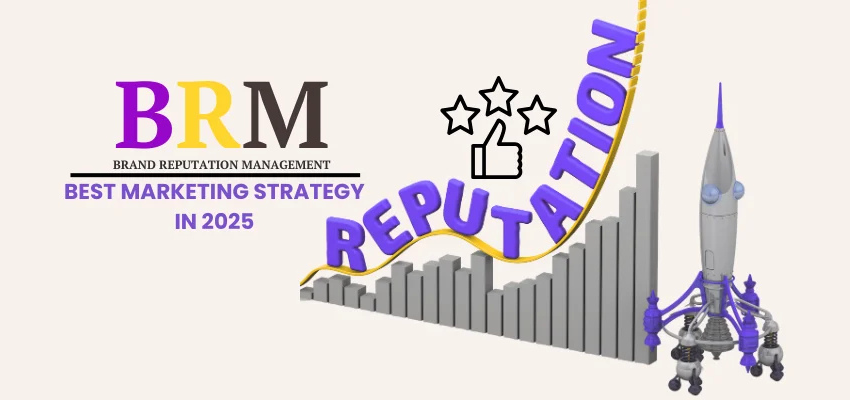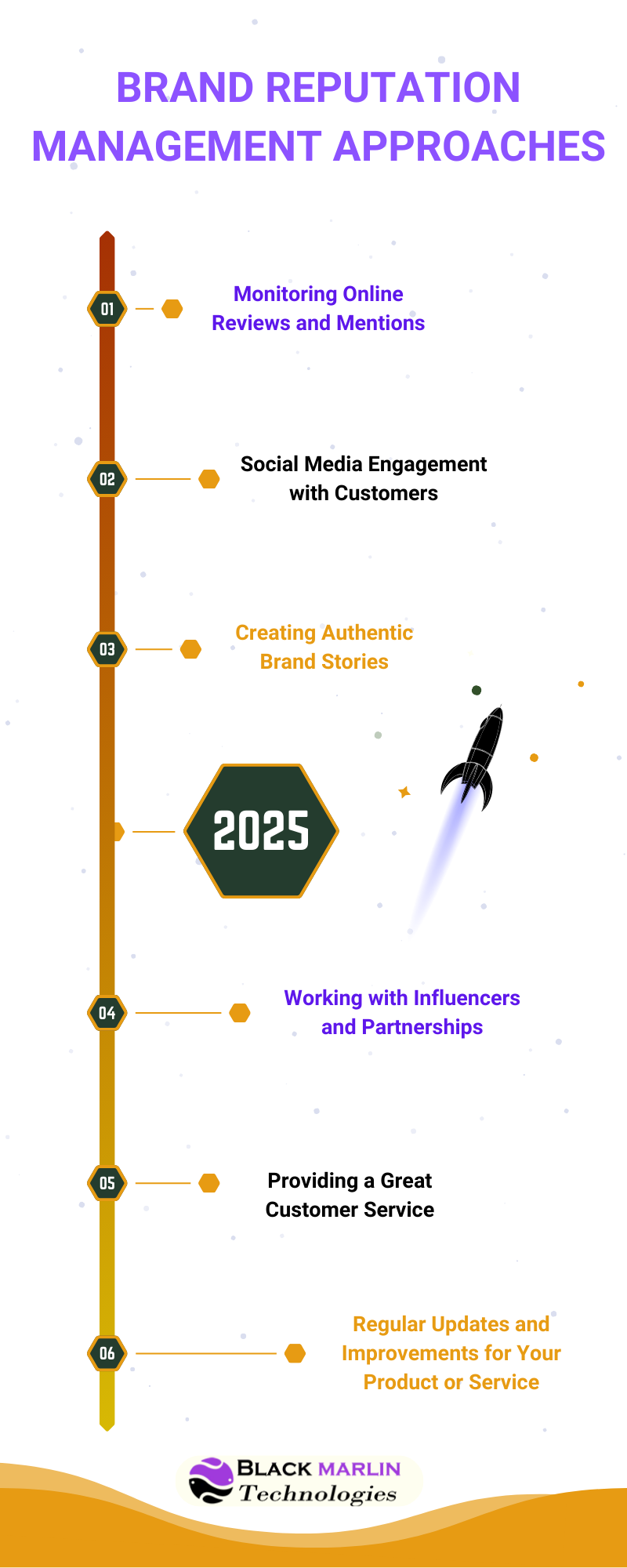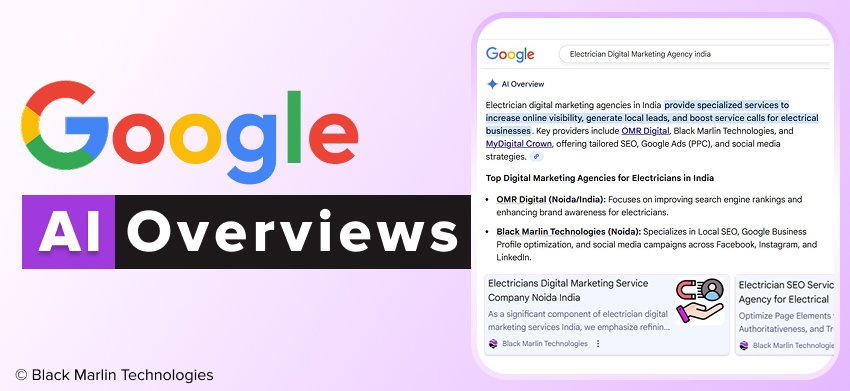Brand reputation is much more important in 2025. Why? Because more opportunities exist whereby a customer can research your business online. They read reviews, go through social media, and compare brands prior to making a choice.
A strong reputation creates trust—the trust that makes buyers pick your products or services over others. On the other hand, a bad reputation can demean sales and growth in a blink.

Good reputation management is not just a marketing set up; it is the basis for a winning digital marketing plan. Today we are going to discuss why brand reputation management is going to be the best marketing strategy in 2025 and how to apply it to get growth for your business.
- What Is Brand Reputation Management?
- Why Brand Reputation Management Outperforms Other Marketing Strategies
- Key Benefits of Strong Brand Reputation for 2025
- Brand Reputation Management Approaches for 2025
- How Technology is Affecting Reputation Management in 2025
- Measuring the Success of Your Brand Reputation Management Efforts
- Common Mistakes to Avoid in Brand Reputation Management
- Case Studies: Brands Winning with Reputation Management in 2025
- Conclusion
What Is Brand Reputation Management?
Brand reputation management services is a process that involves monitoring, influencing, or developing companies’ public perception. It includes monitoring what customers say about the brand online or offline and assuring that the brand is viewed positively and trusts.
Think of it as tending to the business’s image just as you would tend to your personal reputation. This might include:
- Responding to reviews
- Promote positive publicity regarding the brand
- Quickly addressing all emerging problems
- Establishing an honest and consistent message across all marketing platforms
Good reputation management builds brand confidence in customers, which results in sales and profit over time.
Why Brand Reputation Management Outperforms Other Marketing Strategies
Brand reputation management is so different from other marketing strategies because it places emphasis on trust, which is the essence of every buying decision. This makes it so effective in 2025:
- Creates Long-Term Relationships: The management of one’s reputation builds long-term trust with customers, as opposed to quick ads or promotions. Customers often come back to brands they trust.
- Encourages Word-Of-Mouth: Satisfied customers speak to their friends and families, thus increasing the positive image of the brand naturally and at no cost.
- Protects Your Business: When bad things happen, good reputation helps you recover fast and keep your customers loyal.
- There is intensity to this in all channels: It proceeds across people’s recognition of your brand reputation online, in stores, and anywhere else where they come across you.
- Cost-Effective: A reputation management culture is often less expensive than most advertising campaigns but delivers better and lasting results.
To put all in short: A good brand reputation makes every marketing effort more effective and worth much greater returns.
Key Benefits of Strong Brand Reputation for 2025
A good brand on the other hand offers a number of advantages that unleash the game’s potential for business expansion and success. The key aspects may be enumerated as follows:
- Trust and Loyalty from Customers – Customers keep their loyalty to a brand if it fulfills their trust. A good reputation of a company instills confidence in customers to purchase from the company time and time again.
- Sales and Revenue – Brands with higher credibility attract more customers, which in turn leads to an increase in sales and profits. People simply have this urge of talking higher price for a brand they trust.
- Competitive Edge – When good reputation differentiates you from your competitors, then it becomes a competitive edge. This edge will cement your position as the first choice when clients weigh any alternative.
- Crisis Management and Resilience – In the event that something bad appears to make its news, a strong reputation will be of help to bounce back. When the consumer trusts a brand, he/she becomes more forgiving.
Brand Reputation Management Approaches for 2025
In 2025, you must use smart strategies to keep your brand’s reputation intact. These smart strategies are meant to help build trust and engage users. Here are some of the best ways to help you successfully manage your brand reputation:

- Monitoring Online Reviews and Mentions – Be alert to what the customers are saying about your brand on review sites, social media, and forums. Use tools such as Google Alerts or some other kind of reputation management software to keep track of mentions so you can, at once, respond.
- Social Media Engagement with Customers – The social media platform becomes a hub where many share opinions. Answer questions, respond to comments, and appreciate good comments from customers. With active engagement, it builds goodwill by demonstrating that you actually care.
- Creating Authentic Brand Stories – Tell true, authentic stories about a brand’s values, mission and people behind it. Authenticity creates emotional bonds and enhances brand recall.
- Working with Influencers and Partnerships – Collaborate with influencers or trusted brands to extend reach and credibility. When respected people back your brand, others tend to follow.
- Providing a Great Customer Service – Nothing beats great service. Prompt responses and prompt resolution for their problems create good memories for customers that turn into brand ambassadors.
- Regular Updates and Improvements for Your Product or Service – Stay ahead by keeping the list of your offerings up to date and constantly improved. Customers notice when a brand really listens to feedback and tries to get better.
How Technology is Affecting Reputation Management in 2025
Technology has now entered reputation management and does so with increasing velocity; in effect, brand reputation management is now quicker and easier to remain ahead of what public perception is in general. Some of the ways technology could affect reputation management in 2025 are:
- AI and Sentiment Analysis – Artificial Intelligence (AI) reads and comprehends reviews, social media posts, and comments from customers to classify them as positive, negative, or neutral. This allows businesses to promptly recognize any issues or praise and respond accordingly.
- Real-Time Monitoring Tools – In real-time monitoring, an instant alert is sent to you whenever someone mentions your brand online. Acting promptly is, therefore, possible; answering queries, thanking customers, or resolving conflicts before they grow bigger.
- Automated Replies and Chatbots – There are chatbots nowadays that offer responses to standard customer queries immediately. This enriches the customer experience and asserts that your brand does respond to queries immediately, albeit outside of regular working times.
- Data-Driven Insights – Technology gathers information about customer opinions and trends to help comprehend what works and what does not. Accordingly, one can strategize their reputation management efforts with actual data.
Measuring the Success of Your Brand Reputation Management Efforts
To measure whether brand reputation management is in fact working, it is very important to identify and measure the right indicators. Here are some ways on how to measure your success in 2025:
- Monitor Online Reviews and Ratings – Track the number and quality of reviews on sites like Google or Yelp and industry-specific sites. In general, an increase in positive reviews and a rise in ratings equals good reputation.
- Track Social Media Mentions and Sentiment – Tools that track the numbers of positively, neutrally, or negatively contented mentions of your brand serve as a good indicator that a growth in positive mentions means reputation grows stronger.
- Measure Customer Feedback and Satisfaction – There are several feedbacks and survey forms for gaining direct insights about the satisfaction levels of customers. The better scores of satisfaction act as some indications of general good reputation.
- Analyze Website Traffic and Conversion Rates – When reputed well, more will visit a website and thus buy or respond for further information. Keep a watch on the growing number of traffic, longer visiting time, and increasing sales conversions.
- Assess Brand Awareness and Engagement – Evaluate how many people know about your brand and interact with your content online. Growing numbers of followers, shares, and comments are great indicators of a positive reputation.
- Evaluate Crisis Response Efficiency – Negative situations determine how fast and well you handle your response as to your reputation. Keep track of your response time and your customer’s reaction to your effective crisis management.
Common Mistakes to Avoid in Brand Reputation Management
Though hopefully not intentional, some typical mistakes can end up hurting the brand more than helping it. Let’s see what errors in brand reputation you must take care to avoid in 2025:
- Ignoring Feedback That Is Negative – Bad reviews or complaints, if ignored, loosen trust. Consider negative feedback and always react to it immediately and professionally.
- Too Slow or No Response at All – Too slow or no responses will make the customers feel like their opinions were not heard and valued. Engage with them immediately to show that you really do care about their opinions.
- Being Inauthentic or Defensive to a Fault – Customers appreciate honesty. Don’t feign apologies or blame others – this might backfire and mar your credibility.
- Ignoring Social Media Channels – Neglecting monitoring and engaging on social media equates to losing opportunities to connect with customers and sharpen your brand image.
- Emphasizing Only Positive Reviews – You can’t hide the negative reviews or emphasize the positives only. Transparency creates trust and reflects your dedication to improvement.
- Uncoordinated Efforts Across Platforms – Differing messages confuse the customers. Ensure the voice of your brand and what it says is consistent everywhere that has any ease of access.
Case Studies: Brands Winning with Reputation Management in 2025
Real examples tell the sheer power that brand reputation management has. A few brands that successfully used reputation management to flourish in 2025 are:
Brand A: Converting Negative Reviews into Opportunities
Brand A noticed some negative reviews about product delays. Instead of turning away, the company used a nimble-accounting of all concerns in an honest manner and even offered discounts to the affected customers. This earned respect for the company among the customers, and its ratings went higher with time.
Brand B: Social Media Identity Building
Brand B active with customers on social media answering questions, revealing behind-the-scenes content, and celebrating customer stories. It gave their audience a feeling of being valued and elevated brand loyalty.
Brand C: Proving Credibility through Influencers
Brand C partnered with credible influencers who shared genuine reviews and experiences. This helped Brand C extend its reach and bring in new customers who trusted the opinion of the influencer.
Brand D: Putting Real-Time Monitoring Tools to Work
Brand D embraced technology to instantly track brand mentions, pre-empted and resolved a potential PR crisis well ahead of time, gliding over a lot bigger crisis, hence maintaining trust.
Conclusion
In 2025, brand reputation management is marketing. It means building and protecting a reputation strong enough to engender trust from people, lock-in loyal customers, and stand apart from competitors. With smart strategies put in place, rather than rebuffing technology, use it to work for you and so take good care of your brand image, converting every hiccup into an opportunity.
 +1-(646) 362-1414
+1-(646) 362-1414 +91 8826683820
+91 8826683820







